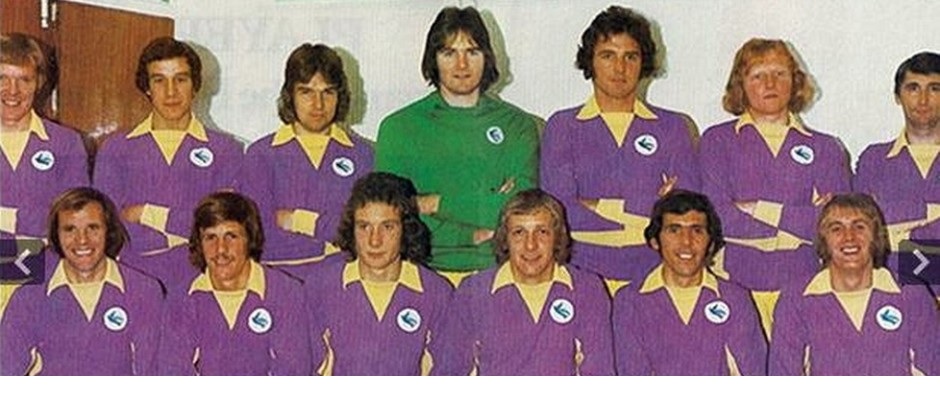
I read somewhere online this week that there were three nominations for Championship manager of the year for the 23/24 season. Two of them were very predictable, serial Championship winner Daniel Farke of Leeds and Ipswich’s Kieran McKenna, who would be my choice for the award.
The third nomination came as a total surprise. Now, I think Liam Rosenior is a good, young manager who was an impressive contributor on Sky when he used to work with them regularly on their EFL coverage, but, for the life of me, I don’t understand what he’s done this season to be thought of as one of the best three managers in the Championship – if anything, I’d say he might be a little fearful about losing his job at the end of the campaign.
In Rosenior’s favour, I thought Hull were good in beating us back in December (our injury hit side was terrible that day mind) and I thought they were the better team in midweek despite losing 3-1 at Leeds, but, if I was in charge of the purse strings at the club, I’d be looking at the table today and thinking we should be doing better given how much we’ve spent this season.
If you take away the teams in receipt of parachute payments (in fact, I’d say the Humberside team have spent more than Watford and Norwich), Hull surely have to be the biggest spenders in the division. The sale of Keane Lewis-Potter to Brentford nearly two years ago would have helped balance the books somewhat, but Hull appear to be most people I knows nomination as the team in our division most likely to be in trouble with what I still call FFP regulations this season.
Hull pushed the boat out in January having spent millions on the likes of ex City loanee Jaden Philogene in the summer and yet, from a distance, it’s seemed they’ve been more vulnerable than you would have expected at home and there have been away matches where I’ve been surprised to see them lose (e.g. QPR, Bristol City and Sheffield Wednesday).
Tomorrow, Hull come to Cardiff City Stadium in tenth place, six points off Norwich in the last of the Play Off positions with a goal difference that is not great, they are half a dozen matches without a win with the only good news being that they have a game in hand on many of the sides around them.
A top six finish is still possible for Hull and they’ll take heart from our feeble home record as well as our pathetic surrender on Good Friday to a Sunderland side more out of form than Hull are, but they’re now in the position where they’re not only going to need to win most of their remaining matches, but they also need three or four other sides to finish their season poorly – that seems unlikely to me.
So on to the quiz, here’s seven questions going back to the sixties about Hull City, the answers to which will be posted on Sunday.
60s. Little is known about this defender who does not have a Wikipedia page. He was a local boy who spent eight years with Hull and a run of defeats when he first broke into the team didn’t help his cause. However, when his manager decided he had to break up an aging backline, our man became a regular choice for a season during which he missed just two games. The following campaign saw him starting every week initially, but when the manager was sacked, the club’s Board took on selection duties and that was the end of his time as a regular in the first team at Hull. He featured four times in games against City – Hull went winless in them and conceded a lot of goals. A move to mining country to wear red followed and then, two years later, a drop into non league to play for a team that made it to a Final at Wembley and also ensured that he never moved out of Yorkshire in his footballing life, can you name the player being described?
70s. This forward born in the same town as former TV presenter Mavis Nicholson was an unusual footballer in that he won three caps for his country at Amateur level at a time when such teams were close to dying out. An electrician, he turned pro to play for his local team, but didn’t stay long as his twenty or so appearances were enough to persuade Hull to sign him. However, almost as soon as he arrived on Humberside, the injury which forced his retirement at twenty seven started to effect him and his two years with the club saw him score at a rate of about in one every three games in his thirty eight league appearances for the club (one of which was against us) – it came as a surprise to learn that he was on our books at one time although he never made it into the first team, but who am I describing?
80s. Goat meets dog maybe.
90s. Pets pawing fuels affection? (4,7)
00s. Cooking pot embellisher perhaps.
10s. Twenty two years ago, he made his debut for his first club’s reserve team, a year later he was starting for their first team and now he plays for one of the biggest clubs in the world. In between times, he’s had two spells with Hull, who is he?
20s. Animal transporter meets Columbus!
Hull answers
60s. More than half of the players in the school team Ray Pettit played for in Hull went on to play league football. He was mostly a back up to the first team during his near decade at Boothferry Park, but played all but two league games in 1968/69. He was introduced as a substitute in Hull’s 6-0 loss at Ninian Park in October 1969 and this was around the time the club’s Board took it upon themselves to start selecting the side – Pettit barely played again after that and eventually left for Barnsley and then Scarborough for whom he played in the 1975 FA Trophy Final.
70s. Briton Ferry born Phil Holme was on City’s books in the mid sixties and went on to play for Wales at amateur level. Holme’s goalscoring feats in non league football persuaded Swansea to sign him in 1971 and the following year he moved on to Hull. Holme came on as a substitute for Hull in their 2-0 win at Ninian Park at the end of 72/73, but was forced to quit the game in 1974 and returned to south Wales where he coached and managed at non league level – he was manager of Inter Cardiff in 1999.
80s. Billy Woof.
90s. Paul Fewings.
00s. Billy Paynter.
10s. Tom Huddlestone was fifteen when he first played for Derby reserves and impressed as a sixteen year old in the Derby side beaten 4-1 at Ninian Pak in August 2003. Currently, he is player coach for Manchester United’s under 21s and he’s had a couple of spells with Hull during his long career.
20s. Noah Ohio.



